| Places | |
|---|---|
| Accession Number | AWM2019.22.196 |
| Collection number | PR01859 |
| Collection type | Digitised Collection |
| Record type | Item |
| Item count | 1 |
| Object type | Diary |
| Physical description | 74 Image/s captured |
| Maker |
Walker, Robert Russell |
| Place made | Malaya, Thailand |
| Date made | 1940-1945 |
| Conflict |
Second World War, 1939-1945 |
| Copying Provisions | Digital format and content protected by copyright. |
| Source credit to | This item has been digitised with funding provided by Commonwealth Government. |
Diary of Robert Russell Walker, 1941-1945




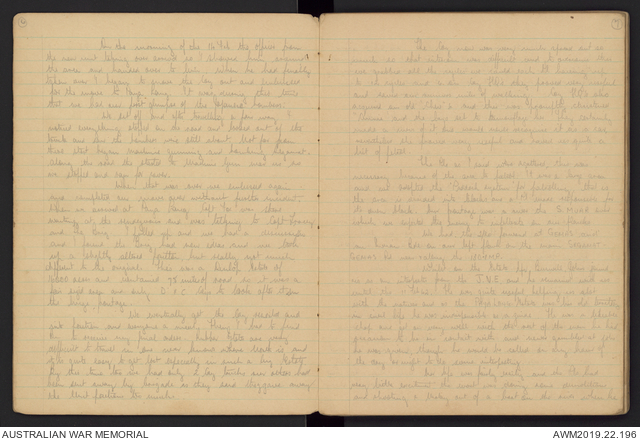














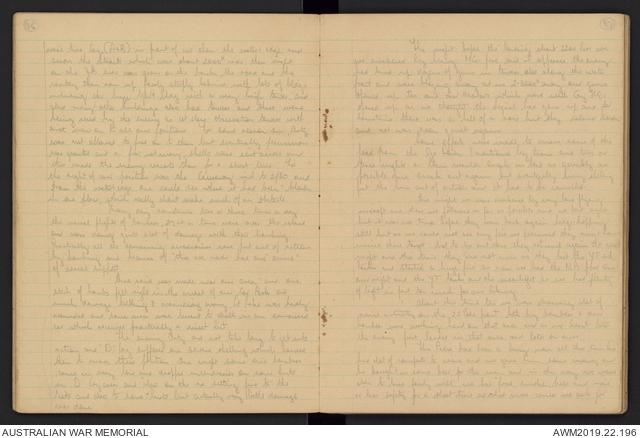















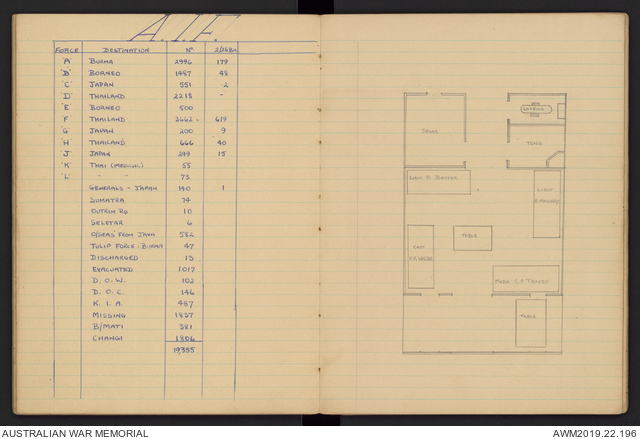

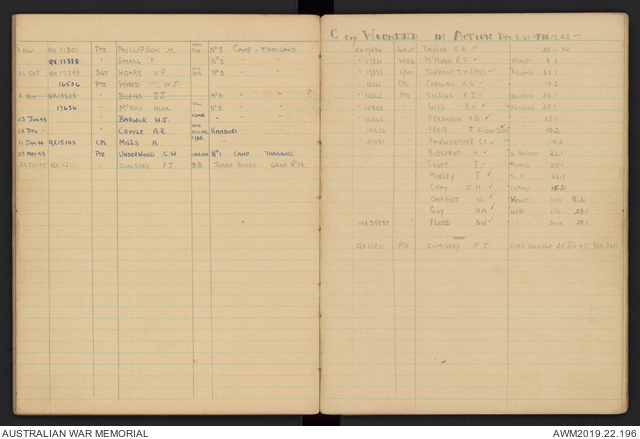
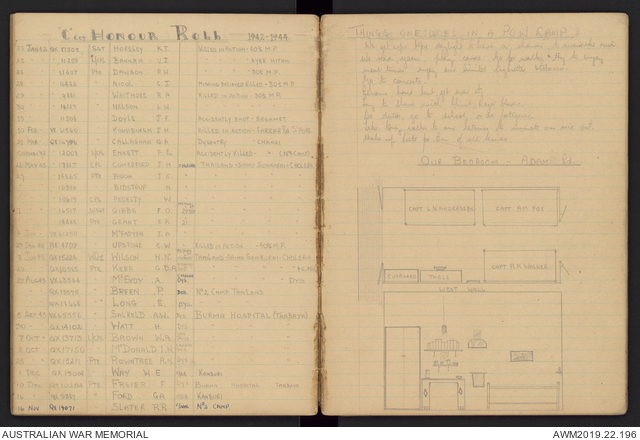














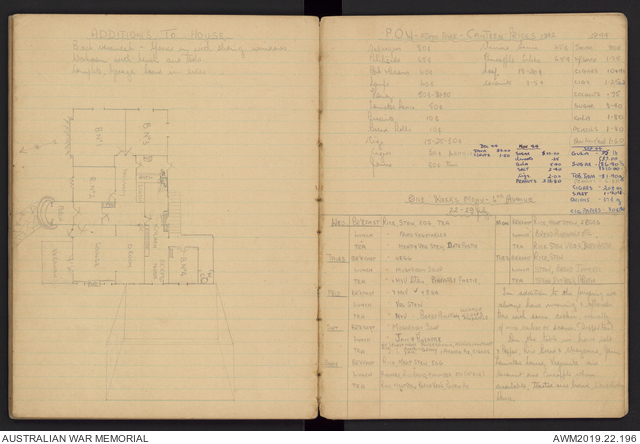



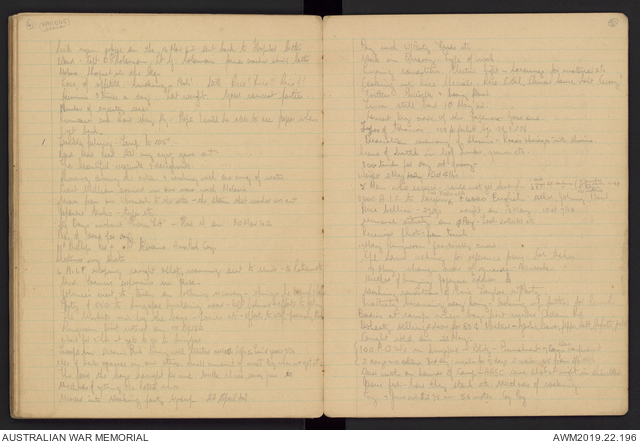


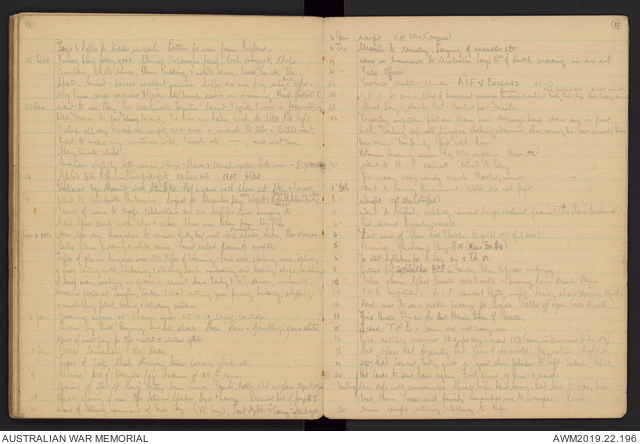
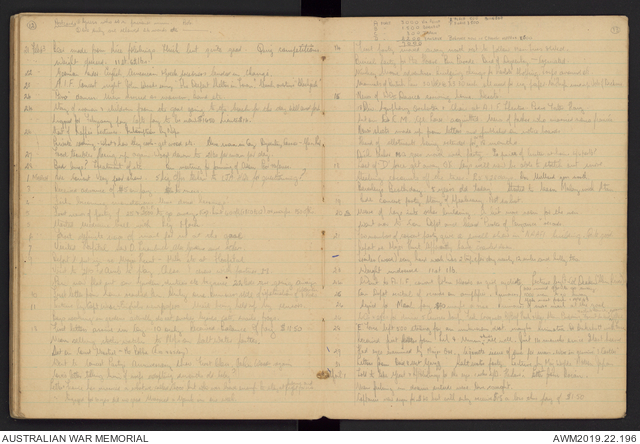










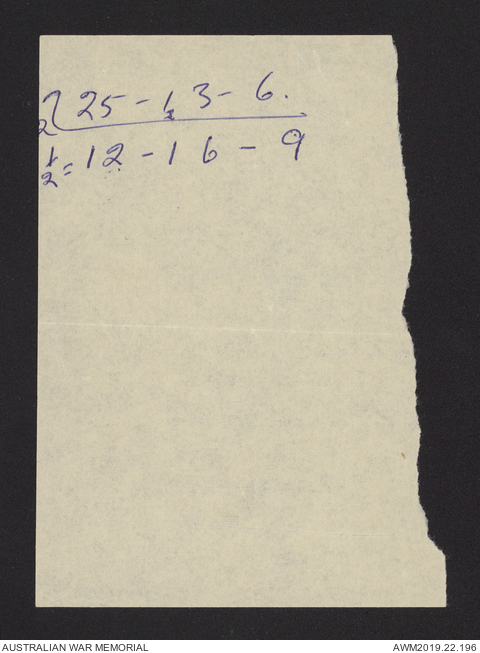

Diary relating to the Second World War service of NX70509 Captain Robert Russell Walker, 2/26 Australian Infantry Battalion.
In his diary, Walker records events that occurred December 1941 and October 1945, while he was serving in Malaya and later held captive by the Japanese as a prisoner of war. Walker mentions the movements of his battalion, taking part in patrols in jungles and rubber estates, being under fire from Japanese planes, demolishing infrastructure during retreat, preparations for the defence of Singapore, and the capitulation of Singapore in February 1942. Walker then records his experiences of being a prisoner of war of the Japanese, such as being marched to Changi prisoner of war camp, periods of sickness, attending concerts performed by prison concert parties, insufficient food rations, being tested for dysentery, and receiving mail from home. In April 1943, Walker left Changi for Thailand as part of “F” Force, which was sent to Thailand to work on the Burma-Thai Railway. He worked on the railway, and later as an orderly in a camp hospital. He writes about poor, unsanitary living conditions, the large amounts of prisoners in hospital sick and dying, sick prisoners being demanded to work, continued insufficient rations, lack of clean water, building air raid shelters, various bouts of sickness, being moved to Burma and then back to Changi. He then briefly writes about the end of the war and his return to Australia.
Walker’s diary also contains many lists and notes on various subjects such as work forces, members of his unit, books read, chess moves, nutritional deficiencies and their effects, Malay language, canteen prices, and “things one misses in a POW camp”.